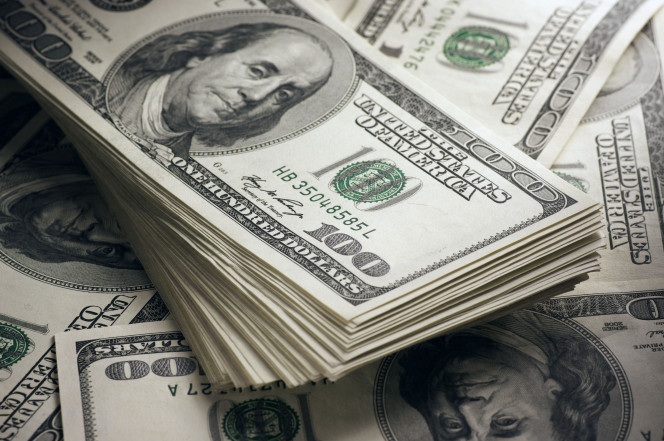The United States of America Dollar held steady within established trading ranges on Monday, April 16, as investors who have recently bet heavily against the greenback digested the implications of weekend strikes on Syria by United States and its allies.
Against a broad basket of its rivals, the dollar was flat at 89.75. It has weakened 0.3 percent so far this month, taking its year-to-date losses to 2.5 percent extending a theme firmly in place since last year.
Despite widening interest rate differentials in its favour and the widest yield gap between two-year U.S. and German debt for nearly three decades, the dollar’s performance in recent months has been closely correlated to swings in risk appetite.
A weaker dollar has broadly coincided with a pick up in demand for riskier assets and vice versa and the Syria strikes underlined that trend.
“The military strikes were well telegraphed and we are seeing a continuation in the broad market theme from last week of a weaker dollar and favorable conditions for risk taking,” said Credit Agricole currency strategist Manuel Oliver.
Despite some jitters in emerging markets last week, notably currencies in Russia and Turkey, broad positioning on the dollar remained at multi-year highs.
In a wider measure of dollar positioning that includes net contracts on the New Zealand dollar, Mexican peso, Brazilian real and Russian rouble, the U.S. dollar posted a net short position valued at $27.21 billion, its biggest since August 2011.
Other major currencies also remain trapped in trading ranges, with the euro starting the week around $1.23, a level around which it had traded all last week.
The U.S. Treasury semi-annual report didn’t jolt the currency markets, with the Trump administration again refraining from naming any major trading partners as currency manipulators as it pursues potential tariffs and negotiations to try to cut a massive trade deficit with China, Reuters reports.
Although the Japanese yen usually draws demand in times of political tension and market turmoil due to its perceived safe-haven status, the dollar’s losses against it were small.
“The reaction in currencies has been limited as President Trump had provided advance notice about a possible strike on Syria, giving speculators ample time to brace for the actual event,” said Yukio Ishizuki, senior forex strategist at Daiwa Securities in Tokyo.
“Many speculators are showing less of a response to yen-supportive factors lately, after the Bank of Japan made clear it was not going to normalise policy soon. This goes for domestic factors as well, like falling support ratings for (Japan Prime Minister Shinzo) Abe.”
Support for Abe, plagued by accusations of cronyism and cover-ups, fell to 26.7 percent in a survey by private broadcaster Nippon TV released on Sunday, the lowest since he took office in December 2012.












